- The popping and crackling is usually produced by trapped water or sap that heats up until it becomes a gas.
- The gas builds up pressure as it expands with the increasing heat until it eventually has enough force to break out through the wood and escape.
- That’s what causes the popping or crackling sound and sprays bits of embers out (Source)
- Dryer wood tends to pop less because there’s less moisture to evaporate.
- Softwood logs and unseasoned green wood will pop and crackle more than properly seasoned or kiln-dried firewood because they have more moisture content
- Get some seasoned firewood with less moisture if you don’t want your fireplace spitting at you
I’m never one to complain about the chilly weather, but this winter is beyond bad.
I go week to week not knowing what the temperature will be like, but dropping below zero without warning is a common occurrence.
If it’s not the weather, its the ice chipping at my windshield until it covers over me like a sheet of ice, freezing me numb in my car.
Last week I went to the grocery store and grabbed some packaged firewood- you know, just in case- and spent a fun Sunday spread out on the living room floor with the firewood popping and spitting embers at me!
I enjoyed its beauty, but wondered, why does firewood pop and crackle?
Even though you may be familiar with the sounds of firewood popping and crackling, you may not know where these sounds are actually coming from or why.
Whether you’re outside with your firepit or indoors with your wood-burning hearth, here are some things that you need to know about why firewood pops and crackles and how to get more or less of it.
Pro Tip: Try installing a fireplace blower kit if you want to maximize your fireplace’s heating efficiency.
So, let’s take a closer look at the dynamics of firewood pops and crackles.
Contents
Why Does Firewood Pop And Crackle?
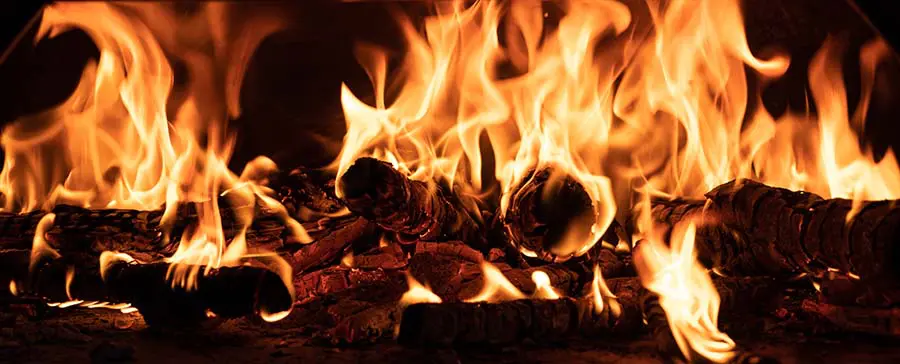
First of all, the pops and crackles that come from your fireplace can set the scene for a very relaxing ambiance and cozy family experience. More importantly, an experience that you can control in advance by learning how to create these sound effects intentionally.
Yet, it is also important to note that certain types of fireplace sounds can differ greatly in frequency, types of noises and causes.
With that being said, this is a huge part of the information that will be shared with you.
It’s a Chemical Reaction
In all actuality, these popping and cracking sounds are coming from a chemical reaction inside of your fireplace. In fact, as the firewood is burning and combustion is being released into the air, the burnt wood is converted into heat and waste gasses.
(Read more about how hot fireplaces get.)
Also, due to the make-up of the wood itself, these gasses can begin to get trapped within the pores of the wood. Therefore, when the pores in the wood and the steam mixture gets forced out, the popping and crackling noises begin.
Furthermore, to make this description a little more simple and less complex, here are the 3 elements involved in the popping and crackling process.
- The type of wood that is burning inside of the fireplace.
- The moisture content level that is contained inside of each of the firewoods.
- How efficient the combustion process is.
All of these elements help to determine how long the crackling and popping will last, and how much noise will be created after the woods starts to burn in your fireplace.
No matter how you stack wood in the fireplace, it’s not going to change the popping!
Caused by the Types of Woods Used in Your Fireplace
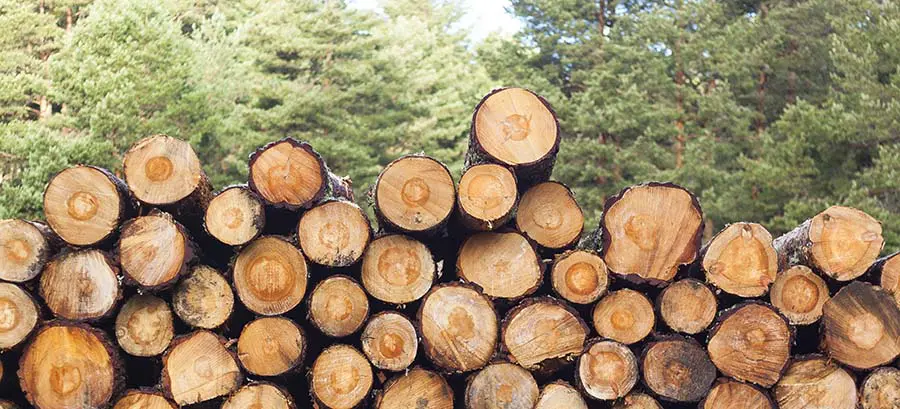
As mentioned earlier, the types of firewood that you choose can make a huge difference in how many pops and crackles you and your family will hear inside of your fireplaces. Therefore, you need to pay close attention to the types of woods that you purchase for your home.
For instance, if you prefer a lot of popping and crackling to set the ambiance on a particular evening or late at night, you may want to buy softwood logs. This is because softwood logs have more pockets inside them to trap the air.
On the other hand, if you do not want your pops and crackles to create a lot of unnecessary noises, you will get fewer crackles and pops by burning hardwood logs instead.
Caused by Moisture Content in the Wood Used
But wait – the type of wood that you use in your fireplace is not the only factor involved in this equation, you need to know about the moisture level inside of these woods, too. Typically, when the moisture in the wood is high, the pops and crackling noises are a lot more frequent.
This is because the moisture in the wood begins to evaporate quickly, while also pushing the moisture out of the wood in the form of more steam. And, in these moments, the popping and crackling picks up and increases until the moisture in the wood dissipates.
What this means is, you can also control the frequency of these noises by choosing wood that has the moisture content level that is best suited for you and your needs. Here are 2 options that you can make your choices from.
Unseasoned Green Wood
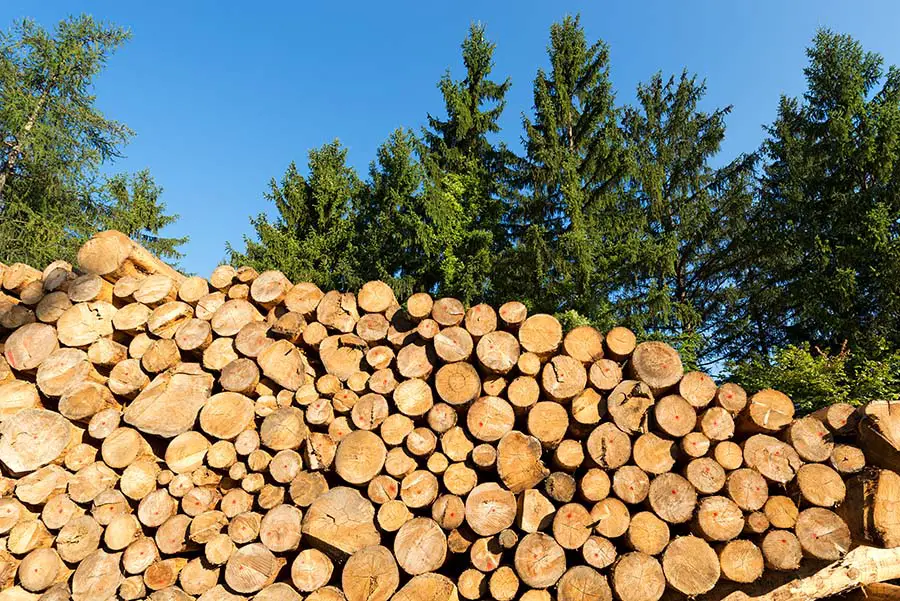
Typically, if you want the moisture level content to be higher in order to create the effect that you are looking for, you should shop around for unseasoned ‘green wood’ because it is much higher in moisture content.
Unseasoned greenwood is better for more pops and crackling in your fireplace.
However, there is also one downside to choosing greenwood to use in your fireplace. And, that is, unseasoned wood is not as easy to light for a fire, and is highly inefficient in keeping the fire burning for longer periods.
Properly Seasoned or Kiln Dried Firewood
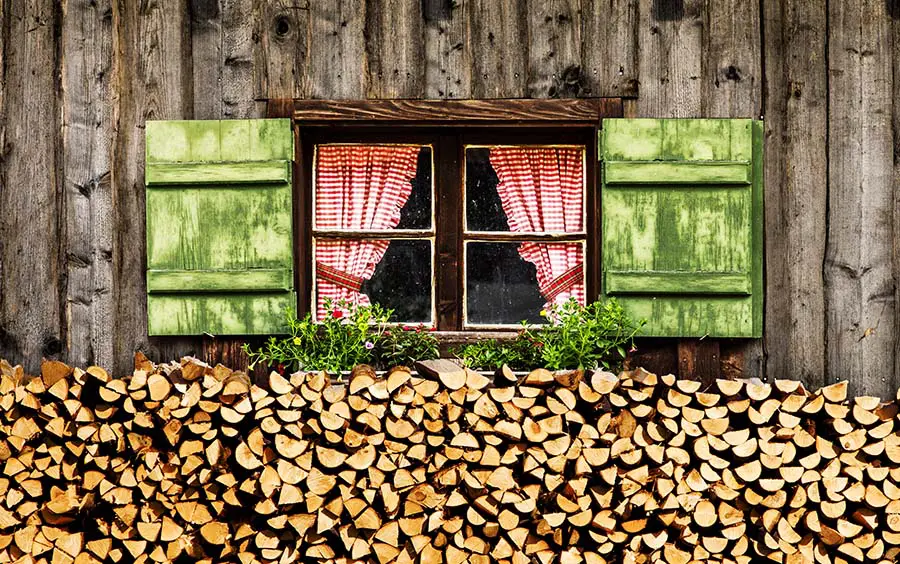
Or, if you prefer to minimize the amounts of popping and crackling that you hear in your fireplace, your better choice is using properly seasoned or kiln-dried firewood. The choice is up to you, your needs, and your preferences.
How to Stop Firewood and Your Chimney From Popping
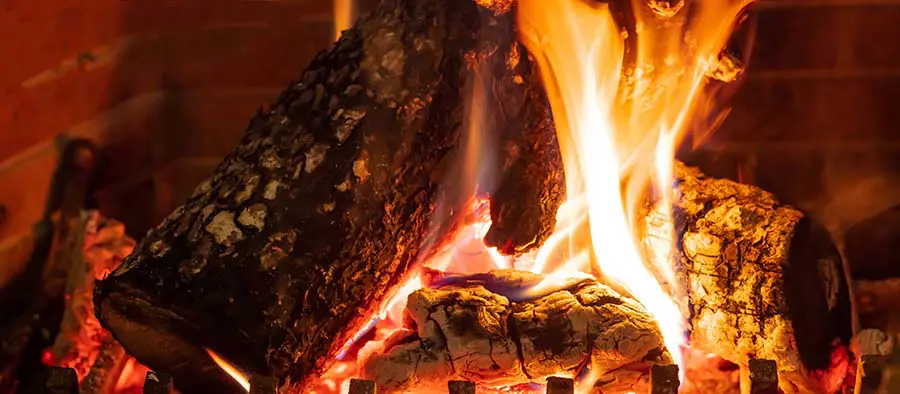
Once you have the logs of firewood in the fireplace, the popping and cracking usually begins.
While this sound, for some people, may be a fond favorable memory of the past, others may view these sounds as an irritating noise that needs to be eliminated as quickly as possible.
Therefore, the question is, how can someone stop your firewood and your chimney from popping without having to wait for it to die down naturally?
The answer to this question may vary. This is mainly because, in some situations, the fireplace itself may be making popping noises because of dirt build-up inside the chimney.
And, it needs to be cleaned out thoroughly before the popping and crackling will stop. Also, to get to the root of this kind of problem, you may need a professional chimney cleaner to help inspect your chimney each year before your family uses it.
Conclusion
The reasons why firewood pops and crackles in your fireplace can vary based on a number of different factors. Some of the most commonly known includes the creation of a chemical reaction, the type of woods used, and the moisture content level in your wooden logs.
Therefore, if you want to control how much your fireplace pops and cracks during start up, you need to choose the best types of wood logs to create the sound effects that you are looking for.
